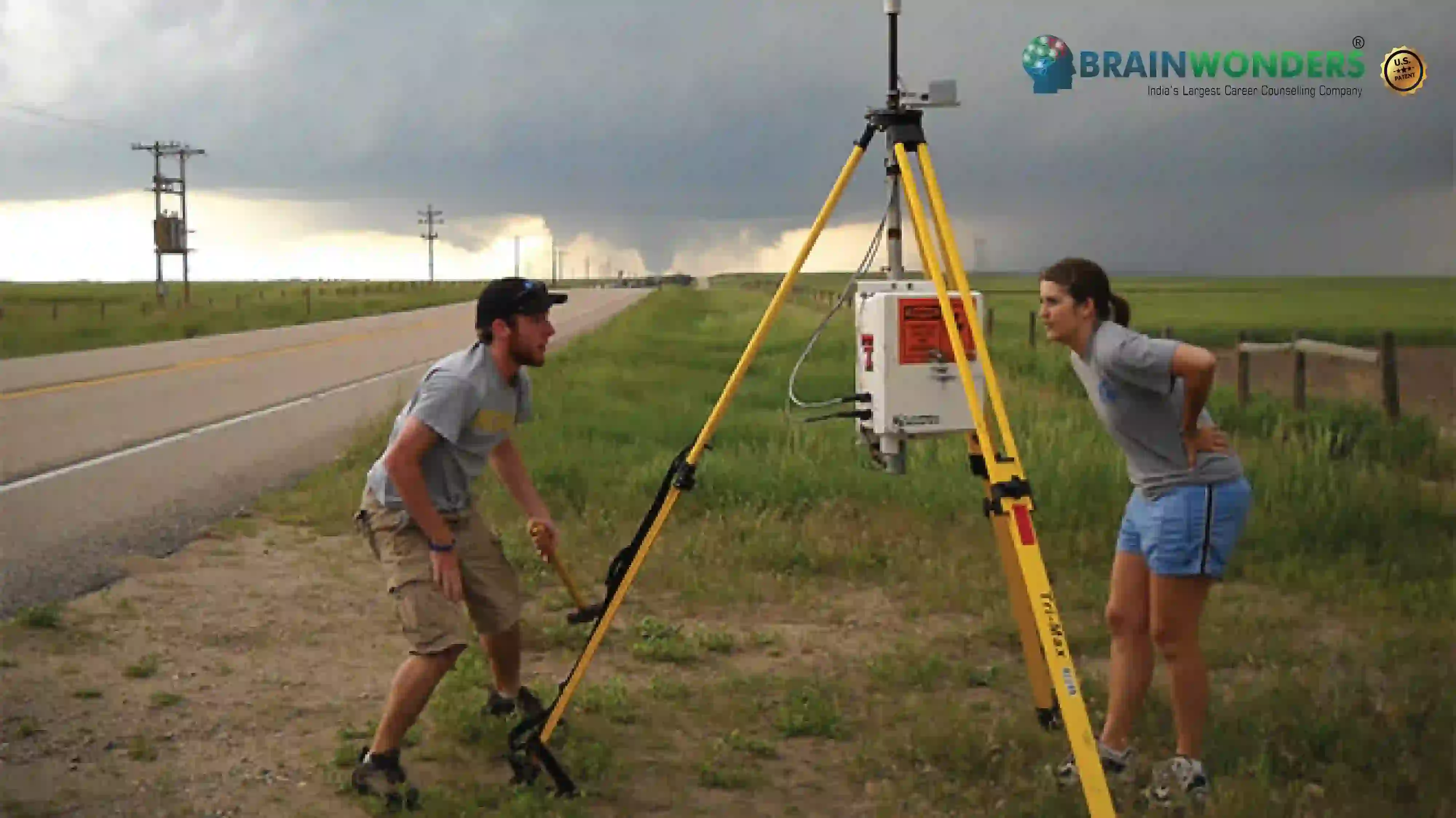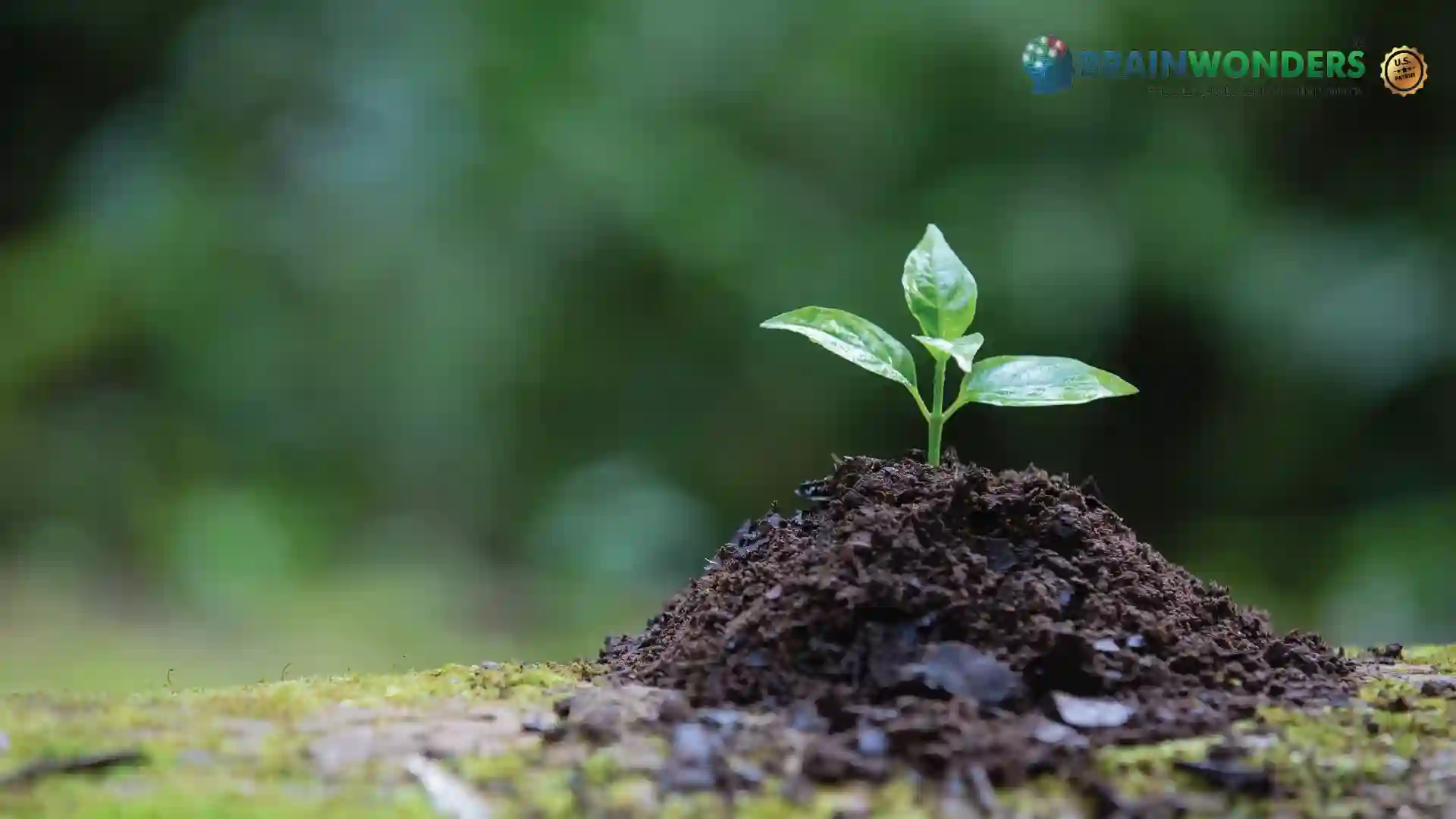How to become a Soil and Water Conservationist
Overview, Courses, Exam, Colleges, Pathways, Salary

Overview
Who is Soil and Water Conservationist ?
A Soil and Water Conservationist specializes in preserving, managing, and restoring natural resources, particularly soil and water. They work to develop and implement strategies and practices that prevent soil erosion, protect water quality, and promote sustainable land use.Soil and Water Conservationists typically have a strong background in agricultural or environmental sciences. They assess the condition of soil and water resources, analyze the impact of land use practices, and design and implement conservation plans to mitigate erosion, sedimentation, and pollution.
Their responsibilities may include:
- Conducting soil surveys.
- Analyzing water quality data.
- Promoting conservation practices to farmers and landowners.
- Providing technical assistance and advice on land management techniques.
They may also collaborate with government agencies, agricultural organizations, and community groups to develop and implement conservation programs.Soil and Water Conservationists play a vital role in maintaining the health and productivity of agricultural lands, protecting water resources, and preserving natural ecosystems. Their work contributes to sustainable land use practices, biodiversity conservation, and the environment's long-term health.
Typical day at work
What does Soil and Water Conservationist do?
A Soil and Water Conservationist is responsible for various tasks related to preserving, managing, and restoring soil and water resources. Their primary goal is to develop and implement strategies that prevent soil erosion, protect water quality, and promote sustainable land use. Here are some key responsibilities of a Soil and Water Conservationist:
- Assessing Soil and Water Resources: Soil and Water Conservationists conduct surveys and assessments to evaluate the condition of soil and water resources in a particular area. They analyze soil types, fertility, erosion risks, and water quality parameters to identify conservation needs.
- Developing Conservation Plans: Based on their assessments, Soil and Water Conservationists design and develop plans tailored to specific sites or regions. These plans include recommendations for erosion control measures, land management practices, and conservation techniques to improve soil health and protect water resources.
- Promoting Conservation Practices: Soil and Water Conservationists are essential in promoting conservation practices to landowners, farmers, and other stakeholders. They provide technical assistance, education, and outreach to encourage sustainable land management practices, such as contour ploughing, terracing, crop rotation, and cover crops.
- Implementing Conservation Programs: Soil and Water Conservationists collaborate with government agencies, agricultural organizations, and community groups to implement conservation programs. They may assist in coordinating and administrating programs that provide landowners with financial incentives, grants, or cost-share opportunities for implementing conservation practices.
- Monitoring and Evaluating Conservation Efforts: Soil and Water Conservationists monitor and evaluate the effectiveness of implemented conservation measures. They collect data on soil erosion rates, water quality indicators, and other relevant parameters to assess the impact of conservation practices and make adjustments as needed.
- Conducting Research and Analysis: Soil and Water Conservationists engage in research and analysis to advance the understanding of soil and water conservation techniques. They may conduct experiments, analyze data, and contribute to scientific publications or reports to support evidence-based conservation practices.
- Collaborating and Networking: Soil and Water Conservationists collaborate with various stakeholders, including farmers, landowners, government agencies, researchers, and environmental organizations. They build partnerships, participate in workshops and conferences, and stay informed about the latest soil and water conservation developments.
Abilities and Aptitude needed
What are the skills, abilities & aptitude needed to become Soil and Water Conservationist?
To become a prosperous Soil and Water Conservationist, several skills, abilities, and aptitudes are essential. Here are some critical qualities required for this career:
- Knowledge of Environmental Sciences: A strong foundation in environmental sciences, including soil science, hydrology, ecology, and natural resource management, is crucial for understanding the principles and practices of soil and water conservation.
- Soil and Water Assessment: Proficiency in assessing soil properties, erosion risks, and water quality parameters is essential. It includes conducting soil surveys, analyzing soil fertility, evaluating erosion potential, and assessing water quality through sampling and analysis.
- Conservation Planning: The ability to develop comprehensive conservation plans tailored to specific sites or regions is vital. It involves understanding erosion control techniques, land management practices, and conservation measures to address soil erosion, sedimentation, and water pollution.
- Technical Expertise: Soil and Water Conservationists should have a solid understanding of various conservation techniques and practices. It includes knowledge of erosion control methods, sustainable land management practices, and the implementation of conservation measures such as contour ploughing, terracing, crop rotation, and cover crops.
- Data Analysis and Interpretation: Proficiency in data analysis and interpretation is necessary to evaluate the effectiveness of implemented conservation practices. It includes analyzing soil erosion rates, water quality data, and other relevant parameters to assess the impact of conservation efforts and make informed recommendations.
- Communication and Outreach: Effective communication skills are essential for engaging with landowners, farmers, government agencies, and community groups. Soil and Water Conservationists should be able to explain complex concepts clearly and concisely, provide technical assistance, and effectively convey the importance and benefits of conservation practices.
- Problem-Solving and Critical Thinking: Identifying and addressing soil and water conservation challenges requires strong problem-solving and critical thinking skills. Soil and Water Conservationists should be able to analyze complex situations, assess risks, and develop innovative solutions to effectively conserve soil and water resources.
- Collaboration and Networking: Soil and Water Conservationists work with diverse stakeholders, including landowners, farmers, government agencies, and environmental organizations. Strong collaboration and networking skills are essential to build partnerships, establish working relationships, and foster cooperation among different groups.
- Passion for Conservation: A genuine passion for environmental conservation, sustainability, and the protection of natural resources is crucial. Soil and Water Conservationists should deeply appreciate the importance of soil and water resources and commit to preserving them for future generations.
- Adaptability and Continuous Learning: Given the evolving soil and water conservation field, adaptability and a willingness to learn are essential. Staying updated with the latest research, advancements in conservation techniques, and emerging technologies is crucial for professional growth and providing the most effective conservation solutions.
Salary
Salary for Soil and Water Conservationist?
A Soil and Water Conservationist's salary in India can vary based on several factors, including experience, location, employer size, industry demand, and specific role and responsibilities.
- Minimum Salary: The minimum monthly salary for a Soil and Water Conservationist in India can range from approximately Rs.20,000 to Rs.40,000. This range typically applies to entry-level positions or individuals with limited experience working in smaller organizations.
- Maximum Salary: The maximum monthly salary for a Soil and Water Conservationist in India can range from approximately Rs.50,000 to Rs.1,00,000 or more. This higher salary range is typically offered to experienced professionals with significant expertise and specialized skills working for larger organizations or in high-demand industries.
- Highest Paying Jobs and Scope: Soil and Water Conservationists in India can be found in government agencies, large consulting firms specializing in environmental conservation, research institutions, and multinational organizations focused on sustainable land management and natural resource conservation. Senior positions with managerial responsibilities, specialized expertise, or those involved in large-scale conservation projects may offer higher salaries.The scope for Soil and Water Conservationists in India is expanding due to increasing awareness of environmental conservation and sustainable land use practices. The highest scope for these careers can be found in government agencies, conservation organizations, research institutions, and consulting firms involved in environmental and sustainability projects.
Pathways
How to become an Soil and Water Conservationist?
Entrance Exam
Entrance Exam for Soil and Water Conservationist ?
Courses
Which course I can pursue?
Best Colleges
Which are the best colleges to attend to become an Soil and Water Conservationist?
Industries
Which Industries are open for Soil and Water Conservationist?
Soil and Water Conservationists can find employment opportunities in various industries and sectors that prioritize the preservation and sustainable management of natural resources. Here are some industries and settings where Soil and Water Conservationists are commonly employed:
- Government Agencies: Government departments and local, state, and national agencies play a significant role in soil and water conservation. Soil and Water Conservationists may work in agencies such as the Department of Agriculture, Environmental Protection Agency (EPA), Natural Resources Conservation Service (NRCS), or state-level conservation departments.
- Environmental and Conservation Organizations: Nonprofit organizations and environmental conservation groups employ Soil and Water Conservationists to implement conservation projects, advocate for sustainable land use practices, and raise awareness about soil and water conservation issues.
- Agricultural and Farming Operations: Soil and Water Conservationists work with farmers and agricultural operations to promote sustainable farming practices. They assist in implementing erosion control measures, designing and implementing conservation plans, and providing technical guidance on soil and water management in agriculture.
- Land Management and Conservation Agencies: Land management agencies, such as national parks, wildlife refuges, and forest services, employ Soil and Water Conservationists to preserve and restore natural habitats, protect watersheds, and manage ecosystems sustainably.
- Consulting Firms: Environmental consulting firms often hire Soil and Water Conservationists to provide expertise in soil and water management, environmental assessments, and regulatory compliance. These firms offer services to clients, including government agencies, private businesses, and non-governmental organizations.
- Research and Academic Institutions: Soil and Water Conservationists may work in research institutions, universities, and academic settings, contributing to scientific research, conducting studies on soil and water conservation practices, and educating future professionals.
- Construction and Engineering Companies: Construction and engineering firms employ Soil and Water Conservationists to ensure compliance with environmental regulations and design sustainable stormwater management systems. They provide expertise in erosion control, sedimentation prevention, and construction site best management practices.
- Resource Management and Watershed Organizations: Soil and Water Conservationists may work in organizations focused on watershed management, natural resource conservation, or water quality improvement. They contribute to watershed planning, implement best management practices, and collaborate with stakeholders to protect water resources.
internship
Are there internships available for Soil and Water Conservationist?
Yes, there are internships available for aspiring Soil and Water Conservationists. Internships provide valuable hands-on experience and an opportunity to learn from professionals in the field. Here are some avenues to explore for internships in soil and water conservation:
- Government Agencies: Government departments and agencies involved in soil and water conservation, such as the Department of Agriculture, Environmental Protection Agency (EPA), and Natural Resources Conservation Service (NRCS), often offer internship programs. These internships provide exposure to various aspects of soil and water conservation, including fieldwork, data collection, and assisting with conservation projects.
- Environmental and Conservation Organizations: Nonprofit and environmental conservation groups focused on soil and water conservation may offer internship opportunities. These organizations work on projects related to habitat restoration, watershed management, and sustainable land use practices.
- Agricultural and Farming Operations: Interning with farms, agricultural cooperatives, or agricultural research organizations can provide practical experience in soil and water conservation within an agricultural context. These internships may involve working on erosion control measures, implementing conservation practices, or assisting with soil and water testing.
- Research Institutions and Universities: Research institutions and universities often offer soil and water conservation internships for students pursuing degrees in related fields. These internships may involve assisting with research projects, data analysis, and laboratory work related to soil properties, water quality, or conservation practices.
- Conservation Districts: Soil and Water Conservation Districts (SWCDs) are local government entities focusing on soil and water conservation efforts. Some SWCDs offer internship programs where interns can gain experience in various conservation activities, including soil erosion control, stream monitoring, and education and outreach initiatives.
- Consulting Firms and Environmental Organizations: Environmental consulting firms and organizations specializing in soil and water conservation may offer internships to students or individuals interested in gaining experience in the field. These internships can involve assisting with environmental assessments, conservation planning, or data collection.
Career outlook
What does the future look like for Soil and Water Conservationist?
A soil conservationist collect samples and take measurements of land in order to understand erosion, create a plan for conservation and calculate the costs and time involved in a project. Some soil conservationists may serve as supervisors on a conservation project, and others might ensure compliance to environmental regulations. While a bachelor's degree is sufficient for most positions, a master's degree might boost the employability of a soil conservationist, and a doctoral degree opens potential opportunities to teach or oversee research projects.
Job demand for conservation workers is expected to grow around 7% between 2014 and 2024. This is in line with the average growth of all jobs at present. No accounting has been made for water conservation, so it is possible that this could be a growth area with the conservation industry. As the population grows, putting a strain on existing water supplies, we may see a greater demand throughout this period and beyond. In contrast, forestry is expecting to see an 8% rise in demand - slightly higher than the national average of all jobs.







